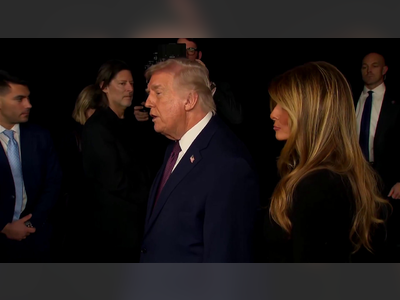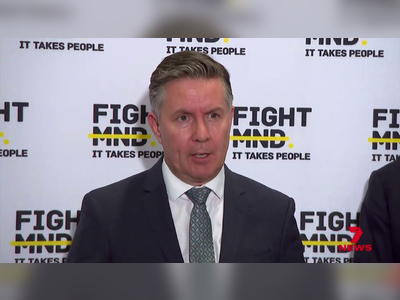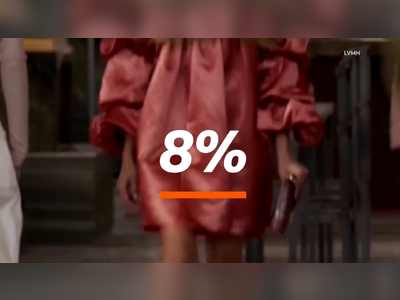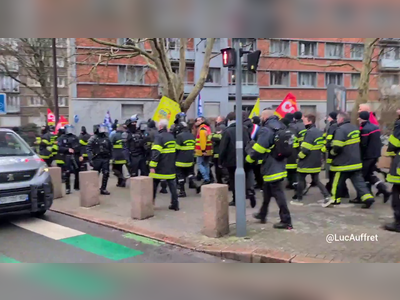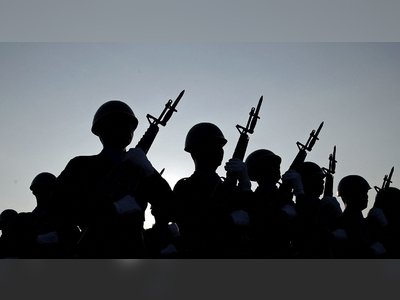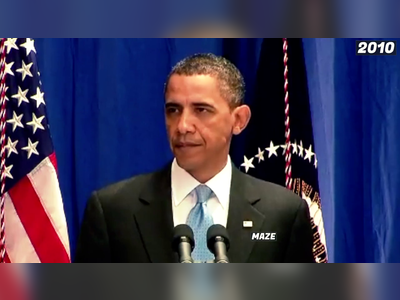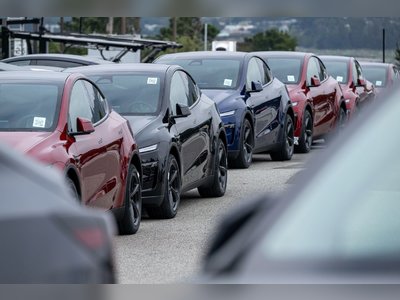0:00
0:00
EU leaders concur on increasing defense expenditure in response to escalating security threats.
Leaders of the European Union have committed to boosting defense expenditures to tackle security deficiencies, yet the financing strategies are still unresolved.
Leaders of the European Union have pledged to significantly improve their collective defense capabilities, agreeing on Monday to boost spending and address deficiencies in military readiness amid escalating threats from Russia and other sources.
This resolution comes in light of rising concerns about Europe's security, especially following Russia's invasion of Ukraine in 2022 and uncertainties surrounding the United States' future support for European defense.
The summit in Brussels, chaired by European Council President Antonio Costa, advocated for a more vigorous and coordinated defense strategy, although leaders did not finalize how to finance the anticipated increase in spending.
European nations have already increased their defense budgets in recent years, marking a 30% rise in 2023, averaging 1.9% of GDP. Nevertheless, EU leaders recognize that additional measures are required, with the European Commission estimating that an extra 500 billion euros may be necessary over the next decade to address critical defense shortcomings, particularly in air and missile defense, military logistics, and ammunition supply.
The discussions among EU leaders included potential financing strategies, with European Commission President Ursula von der Leyen stressing the importance of expanding Europe's defense industrial base to satisfy these needs.
While the topic of issuing joint debt to finance the increase was not directly tackled, diplomatic sources suggest that a middle ground might involve loans instead of grants for military initiatives.
Additionally, the EU's European Investment Bank and private investment could also contribute to funding.
The summit was also complicated by U.S. President Donald Trump's announcement of impending tariffs on EU imports, adding further strain to the already tense transatlantic relations.
NATO Secretary General Mark Rutte and British Prime Minister Keir Starmer participated in the discussions, highlighting the significance of collective defense efforts.
Despite the obstacles, EU leaders are determined to enhance Europe's defense capabilities in response to changing geopolitical risks.
This resolution comes in light of rising concerns about Europe's security, especially following Russia's invasion of Ukraine in 2022 and uncertainties surrounding the United States' future support for European defense.
The summit in Brussels, chaired by European Council President Antonio Costa, advocated for a more vigorous and coordinated defense strategy, although leaders did not finalize how to finance the anticipated increase in spending.
European nations have already increased their defense budgets in recent years, marking a 30% rise in 2023, averaging 1.9% of GDP. Nevertheless, EU leaders recognize that additional measures are required, with the European Commission estimating that an extra 500 billion euros may be necessary over the next decade to address critical defense shortcomings, particularly in air and missile defense, military logistics, and ammunition supply.
The discussions among EU leaders included potential financing strategies, with European Commission President Ursula von der Leyen stressing the importance of expanding Europe's defense industrial base to satisfy these needs.
While the topic of issuing joint debt to finance the increase was not directly tackled, diplomatic sources suggest that a middle ground might involve loans instead of grants for military initiatives.
Additionally, the EU's European Investment Bank and private investment could also contribute to funding.
The summit was also complicated by U.S. President Donald Trump's announcement of impending tariffs on EU imports, adding further strain to the already tense transatlantic relations.
NATO Secretary General Mark Rutte and British Prime Minister Keir Starmer participated in the discussions, highlighting the significance of collective defense efforts.
Despite the obstacles, EU leaders are determined to enhance Europe's defense capabilities in response to changing geopolitical risks.
AI Disclaimer: An advanced artificial intelligence (AI) system generated the content of this page on its own. This innovative technology conducts extensive research from a variety of reliable sources, performs rigorous fact-checking and verification, cleans up and balances biased or manipulated content, and presents a minimal factual summary that is just enough yet essential for you to function as an informed and educated citizen. Please keep in mind, however, that this system is an evolving technology, and as a result, the article may contain accidental inaccuracies or errors. We urge you to help us improve our site by reporting any inaccuracies you find using the "Contact Us" link at the bottom of this page. Your helpful feedback helps us improve our system and deliver more precise content. When you find an article of interest here, please look for the full and extensive coverage of this topic in traditional news sources, as they are written by professional journalists that we try to support, not replace. We appreciate your understanding and assistance.

